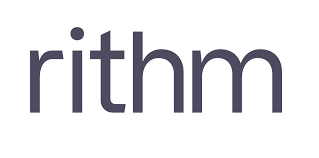Rithm Capital (NYSE:RITM – Get Rating) and Redwood Trust (NYSE:RWT – Get Rating) are both finance companies, but which is the better investment? We will compare the two businesses based on the strength of their profitability, risk, institutional ownership, earnings, analyst recommendations, valuation and dividends.
Analyst Recommendations
This is a summary of current ratings for Rithm Capital and Redwood Trust, as reported by MarketBeat.com.
| Sell Ratings | Hold Ratings | Buy Ratings | Strong Buy Ratings | Rating Score | |
| Rithm Capital | 0 | 1 | 4 | 0 | 2.80 |
| Redwood Trust | 0 | 3 | 4 | 1 | 2.75 |
Rithm Capital presently has a consensus price target of $10.58, indicating a potential upside of 13.80%. Redwood Trust has a consensus price target of $8.63, indicating a potential upside of 33.31%. Given Redwood Trust’s higher possible upside, analysts clearly believe Redwood Trust is more favorable than Rithm Capital.
Earnings and Valuation
| Gross Revenue | Price/Sales Ratio | Net Income | Earnings Per Share | Price/Earnings Ratio | |
| Rithm Capital | $4.73 billion | 0.95 | $954.52 million | $0.56 | 16.61 |
| Redwood Trust | $708.00 million | 1.04 | -$163.52 million | ($1.67) | -3.87 |
Rithm Capital has higher revenue and earnings than Redwood Trust. Redwood Trust is trading at a lower price-to-earnings ratio than Rithm Capital, indicating that it is currently the more affordable of the two stocks.
Profitability
This table compares Rithm Capital and Redwood Trust’s net margins, return on equity and return on assets.
| Net Margins | Return on Equity | Return on Assets | |
| Rithm Capital | 9.52% | 12.41% | 2.13% |
| Redwood Trust | -27.12% | 0.96% | 0.08% |
Insider and Institutional Ownership
44.3% of Rithm Capital shares are held by institutional investors. Comparatively, 72.0% of Redwood Trust shares are held by institutional investors. 0.6% of Rithm Capital shares are held by insiders. Comparatively, 2.2% of Redwood Trust shares are held by insiders. Strong institutional ownership is an indication that endowments, large money managers and hedge funds believe a stock will outperform the market over the long term.
Dividends
Rithm Capital pays an annual dividend of $1.00 per share and has a dividend yield of 10.8%. Redwood Trust pays an annual dividend of $0.92 per share and has a dividend yield of 14.2%. Rithm Capital pays out 178.6% of its earnings in the form of a dividend, suggesting it may not have sufficient earnings to cover its dividend payment in the future. Redwood Trust pays out -55.1% of its earnings in the form of a dividend. Redwood Trust is clearly the better dividend stock, given its higher yield and lower payout ratio.
Risk & Volatility
Rithm Capital has a beta of 1.79, meaning that its share price is 79% more volatile than the S&P 500. Comparatively, Redwood Trust has a beta of 1.36, meaning that its share price is 36% more volatile than the S&P 500.
Summary
Rithm Capital beats Redwood Trust on 9 of the 16 factors compared between the two stocks.
About Rithm Capital
 Rithm Capital Corp. operates as an investment manager that operates a vertically integrated mortgage platform and invests in real estate and related properties in the United States and Europe. The company provides capital and services to the real estate and financial services sectors. Its investment portfolio comprises mortgage servicing related assets, residential securities and loans, and single-family rental loans. The company qualifies as a real estate investment trust for federal income tax purposes. It generally would not be subject to federal corporate income taxes if it distributes at least 90% of its taxable income to its stockholders. The company was formerly known as New Residential Investment Corp. and changed its name to Rithm Capital Corp. in August 2022. Rithm Capital Corp. was incorporated in 2011 and is headquartered in New York, New York.
Rithm Capital Corp. operates as an investment manager that operates a vertically integrated mortgage platform and invests in real estate and related properties in the United States and Europe. The company provides capital and services to the real estate and financial services sectors. Its investment portfolio comprises mortgage servicing related assets, residential securities and loans, and single-family rental loans. The company qualifies as a real estate investment trust for federal income tax purposes. It generally would not be subject to federal corporate income taxes if it distributes at least 90% of its taxable income to its stockholders. The company was formerly known as New Residential Investment Corp. and changed its name to Rithm Capital Corp. in August 2022. Rithm Capital Corp. was incorporated in 2011 and is headquartered in New York, New York.
About Redwood Trust
 Redwood Trust, Inc., together with its subsidiaries, operates as a specialty finance company in the United States. The company operates through three segments: Residential Mortgage Banking, Business Purpose Mortgage Banking, and Investment Portfolio. The Residential Mortgage Banking segment operates a mortgage loan conduit that acquires residential loans from third-party originators for subsequent sale, securitization, or transfer to its investment portfolio. This segment also offers derivative financial instruments to manage risks associated with residential loans. The Business Purpose Mortgage Banking segment operates a platform that originates and acquires business purpose loans, such as single-family rental and bridge loans for subsequent securitization, sale, or transfer into its investment portfolio. The Investment Portfolio segment invests in securities retained from residential and business purpose securitization activities, and residential and small-balance multifamily bridge loans, as well as residential mortgage-backed securities issued by third parties, Freddie Mac K-Series multifamily loan securitizations and reperforming loan securitizations, servicer advance investments, home equity investments, and other housing-related investments. The company qualifies as a real estate investment trust (REIT) for federal income tax purposes. As a REIT, it intends to distribute at least 90% of its taxable income as dividends to shareholders. Redwood Trust, Inc. was incorporated in 1994 and is headquartered in Mill Valley, California.
Redwood Trust, Inc., together with its subsidiaries, operates as a specialty finance company in the United States. The company operates through three segments: Residential Mortgage Banking, Business Purpose Mortgage Banking, and Investment Portfolio. The Residential Mortgage Banking segment operates a mortgage loan conduit that acquires residential loans from third-party originators for subsequent sale, securitization, or transfer to its investment portfolio. This segment also offers derivative financial instruments to manage risks associated with residential loans. The Business Purpose Mortgage Banking segment operates a platform that originates and acquires business purpose loans, such as single-family rental and bridge loans for subsequent securitization, sale, or transfer into its investment portfolio. The Investment Portfolio segment invests in securities retained from residential and business purpose securitization activities, and residential and small-balance multifamily bridge loans, as well as residential mortgage-backed securities issued by third parties, Freddie Mac K-Series multifamily loan securitizations and reperforming loan securitizations, servicer advance investments, home equity investments, and other housing-related investments. The company qualifies as a real estate investment trust (REIT) for federal income tax purposes. As a REIT, it intends to distribute at least 90% of its taxable income as dividends to shareholders. Redwood Trust, Inc. was incorporated in 1994 and is headquartered in Mill Valley, California.
Receive News & Ratings for Rithm Capital Daily - Enter your email address below to receive a concise daily summary of the latest news and analysts' ratings for Rithm Capital and related companies with MarketBeat.com's FREE daily email newsletter.
